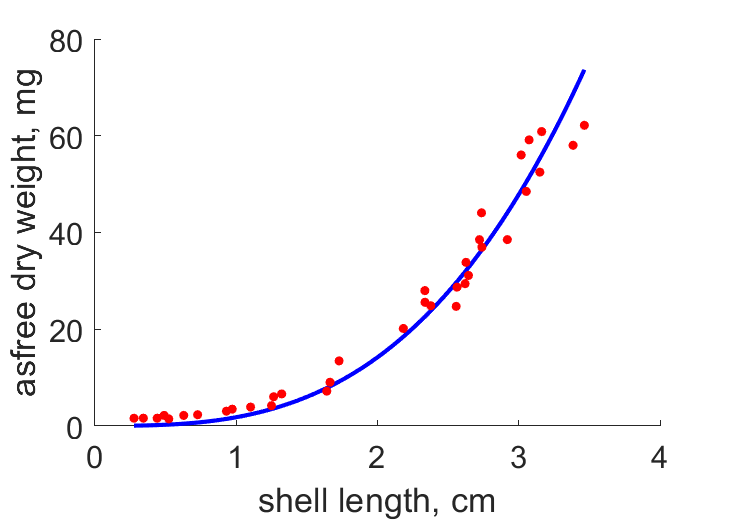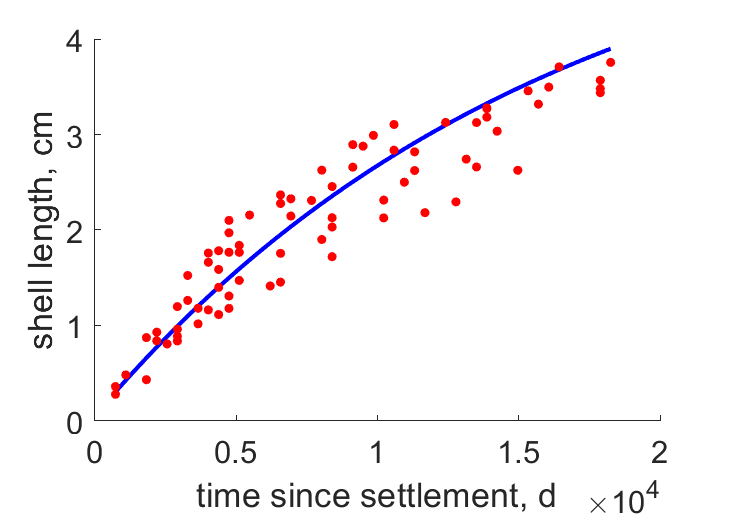Predictions & Data for this entry
| Model: std | climate: ME | migrate: | phylum: |
| COMPLETE = 1.2 | ecozone: MS | food: biP | class: |
| MRE = 0.047 | habitat: 0iMb | gender: D | order: |
| SMSE = 0.007 | embryo: Ms | reprod: O | family: |
Zero-variate data
| Data | Observed | Predicted | (RE) | Unit | Description | Reference |
|---|---|---|---|---|---|---|
| ab | 30 | 28.48 | (0.05057) | d | age at birth | guess |
| tp | 6570 | 6652 | (0.01241) | d | time since birth at puberty | guess |
| am | 4.562e+04 | 4.563e+04 | (1.427e-05) | d | life span | guess |
| Lb | 0.05 | 0.05255 | (0.05107) | cm | total length at birth | guess |
| Lp | 2 | 1.969 | (0.01529) | cm | total length at puberty | guess |
| Li | 5.95 | 5.74 | (0.03524) | cm | ultimate total length | BreyPeck1995 |
| Ri | 46.58 | 46.54 | (0.0007377) | #/d | maximum reprod rate | guess |
Uni- and bivariate data
| Data | Figure | Independent variable | Dependent variable | (RE) | Reference |
|---|---|---|---|---|---|
| LW |  | shell length | asfree dry weight | (0.1307) | BreyPeck1995 |
| tL |  | time since settlement | shell length | (0.1305) | BreyPeck1995 |
Pseudo-data at Tref = 20°C
| Data | Generalised animal | Magellania fragilis | Unit | Description |
|---|---|---|---|---|
| v | 0.02 | 0.01189 | cm/d | energy conductance |
| kap | 0.8 | 0.7936 | - | allocation fraction to soma |
| kap_R | 0.95 | 0.95 | - | reproduction efficiency |
| p_M | 18 | 1.865 | J/d.cm^3 | vol-spec som maint |
| k_J | 0.002 | 0.0003053 | 1/d | maturity maint rate coefficient |
| kap_G | 0.8 | 0.7993 | - | growth efficiency |
| k | 0.3 | 0.3 | - | maintenance ratio |
Discussion
- Since larvae do not feed (see fact 2), no acceleration is assumed
- In view of low somatic maintenance, pseudodata k_J = 0.002 1/d is replaced by pseudodata k = 0.3
Facts
- Adults of most species are of one sex throughout their lives (Ref: Wiki)
- The larvae of articulate species live only on yolk, and remain among the plankton for only a few days (Ref: Wiki)
Bibliography